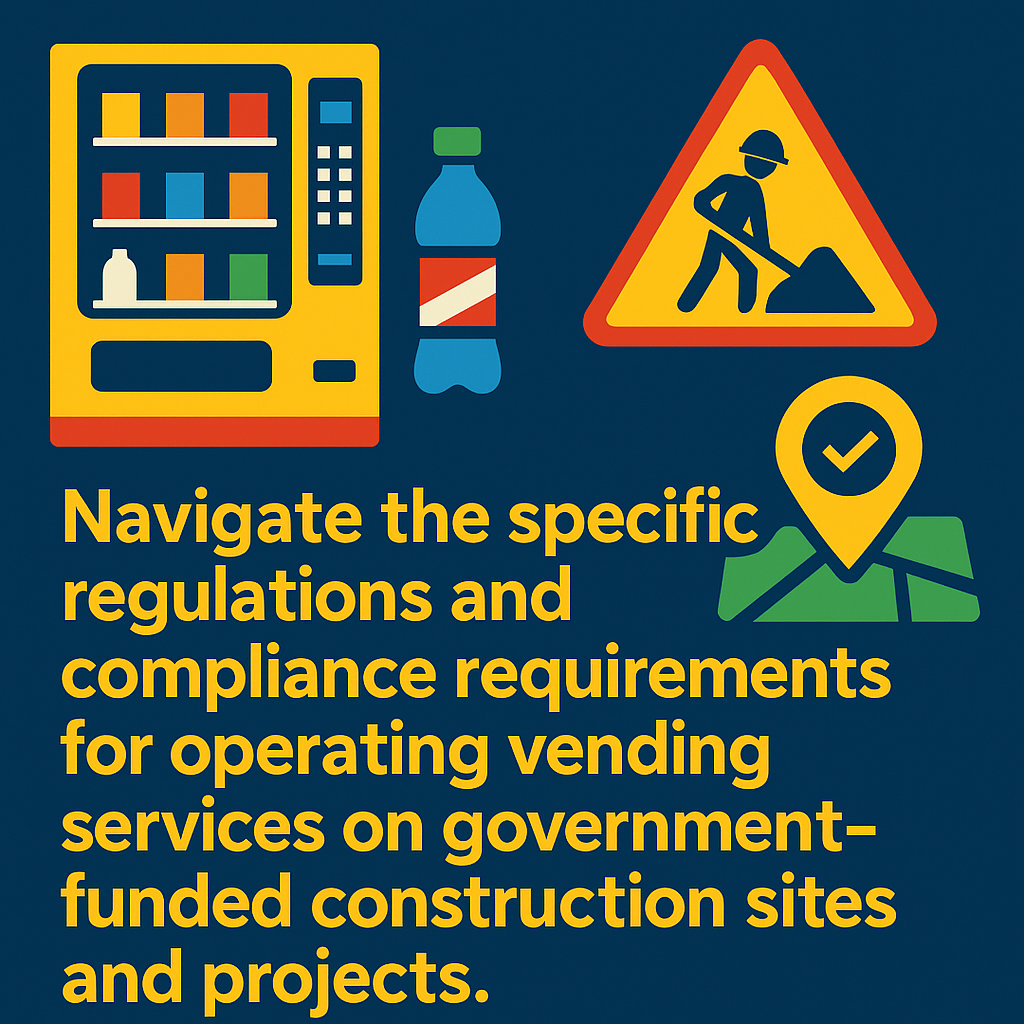Government construction projects are subject to rigorous oversight, and vending services provided on these sites are no exception. Navigating the maze of regulations, from federal mandates to local health codes, is essential for seamless operation and avoiding costly penalties. Understanding these compliance requirements ensures that hard-working crews have access to convenient, safe, and regulated refreshments.
One of the primary considerations is adherence to the Americans with Disabilities Act (ADA). All vending machines placed on government property, including construction sites, must be ADA compliant, ensuring accessibility for all individuals. Furthermore, worker safety is paramount. Vending operators must consider the placement of machines to avoid hazards and ensure they are secure and stable in often dynamic and rugged environments. This means seeking equipment with high durability ratings suitable for industrial settings.
Food safety and public health mandates are also non-negotiable. Vending items must meet strict government food handling and storage standards. This includes proper refrigeration for perishable goods, clear labeling of ingredients, and regular inspections to ensure all products are fresh and safe for consumption. Many government projects also incorporate healthy vending policies, which may require a certain percentage of offerings to be nutritious options. Operators should be prepared to stock a diverse range of products to meet these guidelines, including a strong focus on healthy vending choices for construction crews.
Beyond product-specific rules, securing the necessary permits and licenses is crucial. This can involve obtaining specific business licenses, food service permits from local health departments, and sometimes site-specific access or operational permits from the government agency managing the project. These permits ensure traceability and accountability, reflecting the public nature of the construction work. Additionally, environmental regulations might factor in, encouraging the use of energy-efficient machines or recyclable packaging to align with broader sustainability goals.
By prioritizing compliance, vending services on government construction sites not only fulfill contractual obligations but also contribute positively to the welfare of the workforce and the successful completion of the project.

